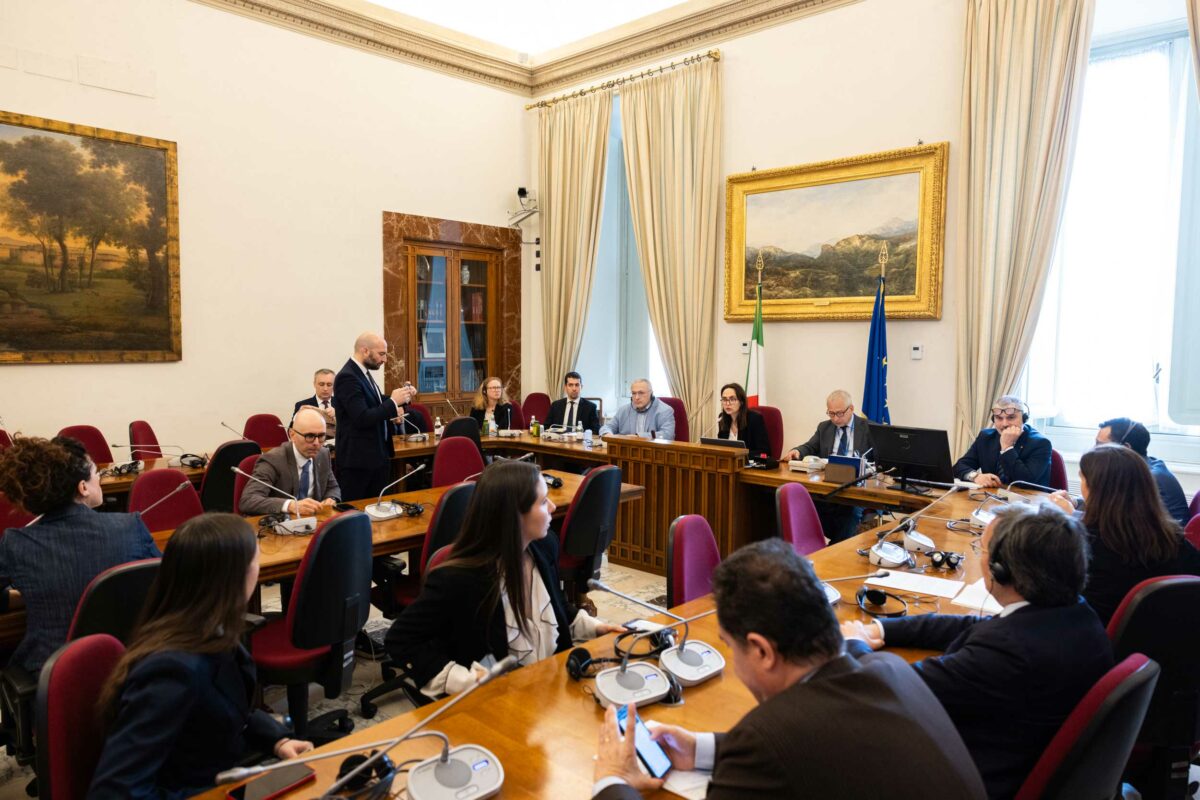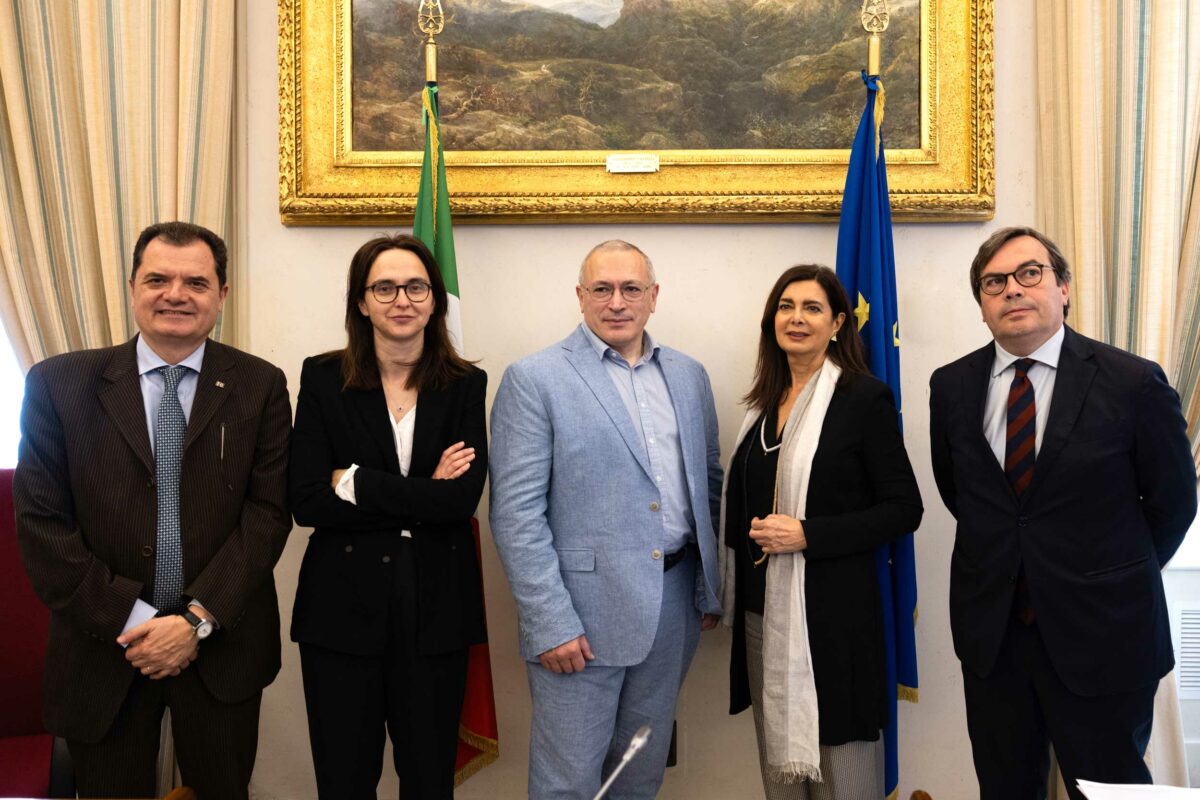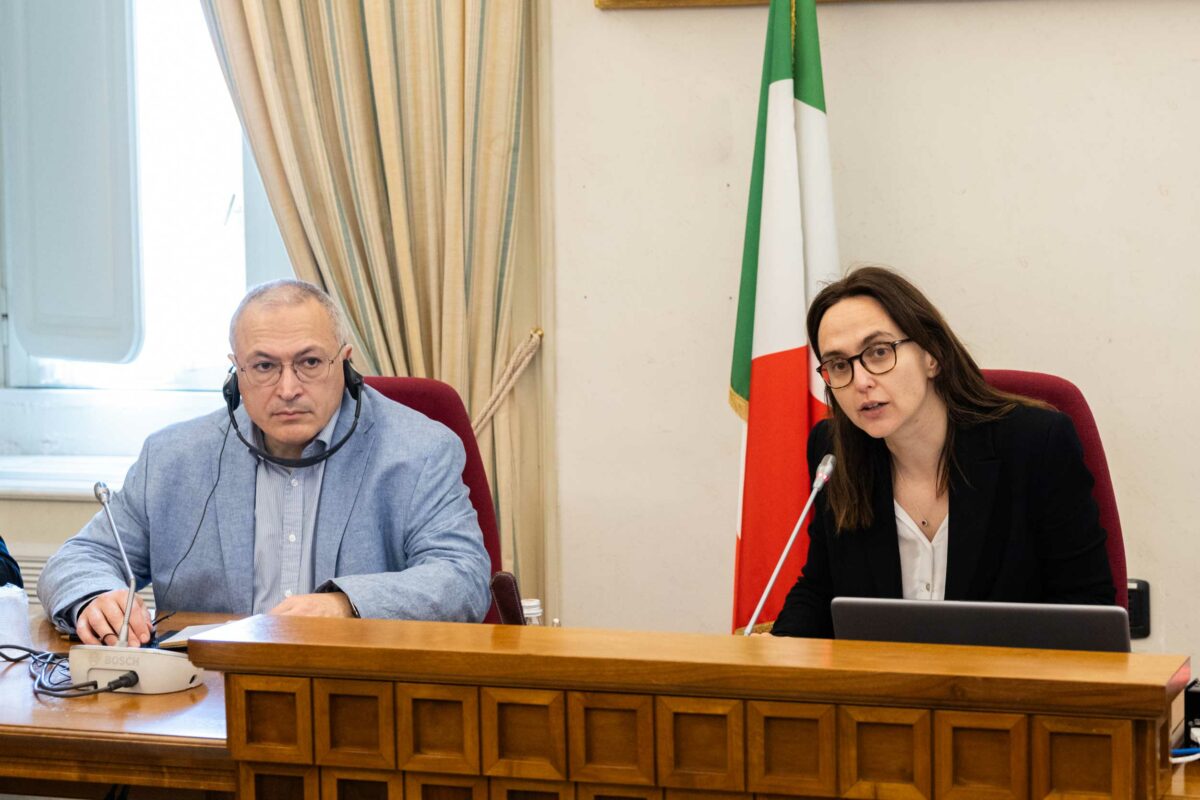Mikhail Khodorkovsky – exchange of remarks at the Foreign Affairs Committee of the Italian Parliament

Ladies and gentlemen, thank you for the opportunity to address you.
I cannot say that I am happy, but it is symbolic that this hearing is taking place on the day of the inauguration of a Russian president whose legitimacy is unrecognized by the European Parliament and a whole range of nation states. We believe these elections were not only unfair; they were not elections at all. It is well known that, to secure his re-election, Putin unlawfully amended Russia’s Constitution. These amendments were carried out not only unlawfully, but incorrectly from a legal perspective.
As a result, the first main section of the Russian Constitution now contradicts the rest of the text. That is, Russia de facto has no legally functional Constitution. Before these elections, Putin not only stripped even the most minor independent candidate of the right to participate, but also murdered his political opponent Alexey Navalny. It is curious that when one of his potential competitors, Boris Nadezhdin, declared that he was gathering signatures to run, the queues of people ready to sign for him were visible all over the country.
Putin announced that he had gathered 3 million signatures in support of his candidacy. Nobody saw a single queue. That is to say, Russian citizens in general are convinced that there were simply no elections. In this situation it is rather shameful if representatives of certain European countries took part, one way or another, in the inauguration.
Before these hearings began, I still could not find any confirmation of this fact. But we will find out today. I want to draw attention to the fact that these illegal elections formally took place on occupied territories of Ukraine, which, of course, was not recognized by the European Union. And I want to reiterate what I often tell representatives of Western governments, something that, unfortunately, is still not obvious to them: Putin is not their colleague, Putin is not a head of state, in the 21st Century sense.
In his heart, and in his behaviour, and in his methods, he is the head of a mafia gang. In most countries, Italy included, mafia gangs were not permitted to usurp the state. We in Russia were not so lucky. And a mafia gang has usurped our state. That is, there is the state, and there is a mafia gang that controls it.
This is important to understand from several perspectives. First, in terms of how to negotiate. Negotiations should be carried out as they would be with a mafia gang that has taken hostages. Second, in terms of money. The 300 billion in Russian money that is today frozen in the West must not be viewed as the money of Russian citizens, Russian pensioners and so on. Those people will never get their hands on that money, while Putin is in power. That is mafia money, and will be used to further mafia interests.
It is a different matter that, of course, the question of their confiscation or use must be decided within a court procedure. But it is important to understand that these are mafia funds, not state funds.
I believe that Italy, as a country with broad experience fighting with the mafia, can play a vital role in drawing up the legislation Europe, and the West in general, needs in order to deal with the Putin regime.
I would like to address another issue. The position of Russian citizens. Very many Russians do not want to serve this regime. What choice do they have? Some can retreat into private lives, but private spaces are shrinking every day. This is particularly the case for those who are educated, involved in technological innovations, and those who are politically active. The regime needs these people – on one hand, to manufacture weapons to control the Russian society. And on the other hand, these are the people the regime fears when they do not support it. These are the people targeted for repression. It seems to me that it is vital that these people be offered an alternative, an opportunity to realize themselves in the West. While the situation in Russia is the way that it is. First and foremost, through what are called talent visas. We must understand that talent visas have two important functions.
Firstly, they help people realize their potential in conditions that do not make them ashamed of their work. Secondly, they do damage to the regime, because each talented person who leaves Russia reduces the regime’s capability to make weapons, propaganda and so on. I know many countries have such programs. But unfortunately, none of these programs are proactive with regard to Russia. Nobody is actively inviting these people. And it is worth doing. There are not many such people in each country. And by losing them, Putin would lose a significant part of his own potential.
The second issue I would like to address in relation to Russian citizens: some Russians who oppose the regime have been able to leave Russia. In Russia, criminal cases have either already been opened against them, or will be opened. Sometimes these criminal cases are based on ordinary charges under the Criminal code. Sometimes these are cases on charges tied to extremism, terrorism or fake news. We need to understand that, in relation to the Russian situation, the Russian writer Grigory Chkhartishvili, who had no relation to any violent acts or justification of terrorism, was labeled a terrorist. He is an absolutely worthy man. Nevertheless, he was labeled a terrorist. This is what your legal system is dealing with when it comes to Russian citizens. These Russians often have passports close to expiry, and Russia refuses to give them new ones. In some countries, such as Germany, France and Lithuania, this issue was resolved with the help of a national document confirming the person’s Russian citizenship. In Lithuania, this is called a gray passport. I don’t know how this issue is resolved in Italy. But it is a problem that will become more significant each day for people, because passports are expiring.
I am ready to take questions.
Thank you for your attention.








